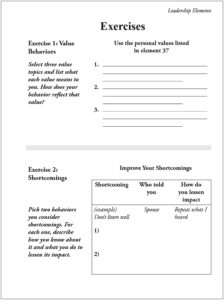A shortcoming seems like a bad thing—a character flaw, perhaps. “Short” before a word means inadequate—shortsighted, short-lived, short shrift. However, there is another way to think of shortcomings: they are the natural complement to your skills. For example, as a leader, you have a vision or a view of the way the future could be. You see further down the road than many people. That may mean you do not relish details—you do not dwell on the weeds along the path. So not being detail oriented may lead to skipping steps or moving too quickly. That is a shortcoming.
Nothing is more obvious to others than your shortcomings. Rather than hide your shortcomings, you should recognize them and then work around them through other people and processes. You probably know some of your shortcomings because the world has given you feedback about them. You did well in school in thought classes like history, but you did badly in detail classes like accounting. Your mother reminded you frequently of your failures to pick up your clothes or be on time. As a leader and manager, you should reflect (element 19) on those shortcomings that interfere with your job execution.
When you realize a shortcoming, you can protect yourself and the organization by involving others who possess complementary skills. Using the skills of others for the greater good is the mark of a good manager and leader. If you fail to recognize your shortcomings and take a proactive approach, you risk failing and having your adversaries take advantage of your shortcomings. When you recognize and acknowledge your shortcomings and ask for help, others feel needed and valuable. They become part of the solution.

